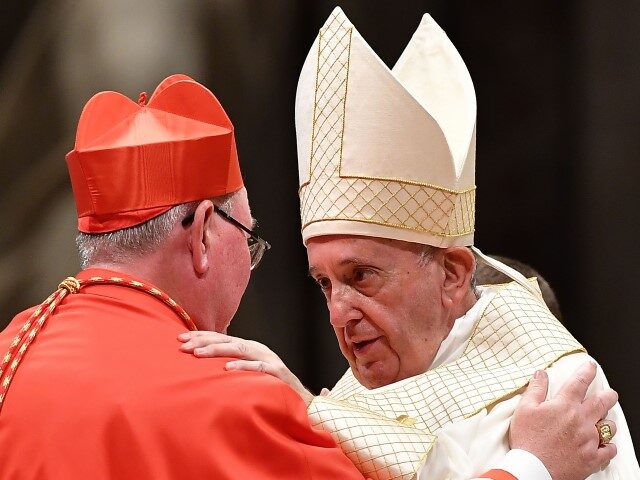ROME — A key advisor to Pope Francis, Cardinal Jean-Claude Hollerich, has called for relaxation of Catholic teaching on gay sex, insisting that the Church should not ask “impossible things” of homosexuals.
Earlier this month, Pope Francis named Cardinal Hollerich — a Jesuit like himself — to his inner cabinet of advisors despite the cardinal’s open rejection of central elements of Catholic moral teaching.
“How can you condemn people who cannot love except the same sex?” Hollerich asked during an interview with Glas Koncila, a Croatian Catholic weekly, published March 27. “For some of them it is possible to be chaste, but calling others to chastity seems like speaking Egyptian to them.”
“We can only charge people with moral conduct they can bear in their world,” the cardinal said. “If we ask impossible things of them, we will put them off.”
“If we say everything they do is intrinsically wrong, it is like saying their life has no value,” he added, apparently suggesting that gay sex is “everything they do.”
In the interview, Hollerich went on to criticize the Catechism of the Catholic Church and its manner of describing homosexuality.
“I find the part of the teaching calling homosexuality ‘intrinsically disordered’ a bit dubious,” he declared.
“We should not reduce homosexuality to inordinate sexual relations. That is a very crude way of understanding a human person,” he said.
In his criticism of Church teaching on gay sex, Cardinal Hollerich echoed similar arguments made by another rising star in the Francis firmament, namely, the newly appointed Cardinal Robert McElroy of San Diego.
Last month, Cardinal McElroy similarly insisted that the Catholic Catechism should be modified to offer a more positive view of gay sex in two back-to-back articles in America magazine, the Jesuit flagship publication in the U.S.
“I’ve said for some years,” Cardinal McElroy contended, “that the intrinsically disordered language is a disservice.”
The Catechism, a compendium of authoritative Catholic teaching, says that Sacred Scripture “presents homosexual acts as acts of grave depravity,” and thus tradition has always declared that “homosexual acts are intrinsically disordered” and are “contrary to the natural law.”
Attempted copulation between two persons of the same sex is naturally closed to the gift of life and does not “proceed from a genuine affective and sexual complementarity,” the Catechism states, and therefore, under no circumstances can such relations “be approved.”
“The problem is,” McElroy argued, the word “disordered” is used in the Catechism “as a philosophical term, but to us in our country and really most of the world, disorder is thought of as psychological.”
“It’s a terrible word and it should be taken out of the catechism,” he declared.
The Cambridge dictionary, for instance, defines “disordered” as “not normal, in a way that is unhealthy.” For his part, Saint Thomas Aquinas said that in the case of homosexuality an act of lust is disordered because “the generation of offspring cannot result from the act” and “such is the vice against nature.”
Cardinal Hollerich has insisted that “the sociological-scientific foundation of this teaching is no longer correct.”

COMMENTS
Please let us know if you're having issues with commenting.